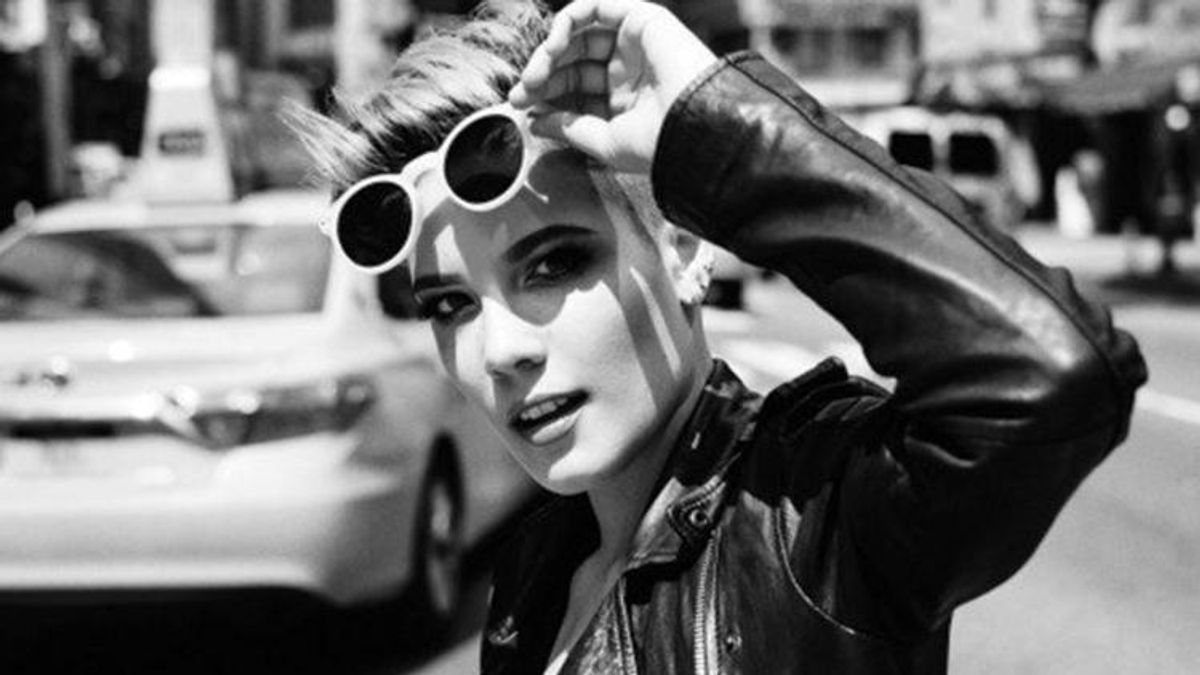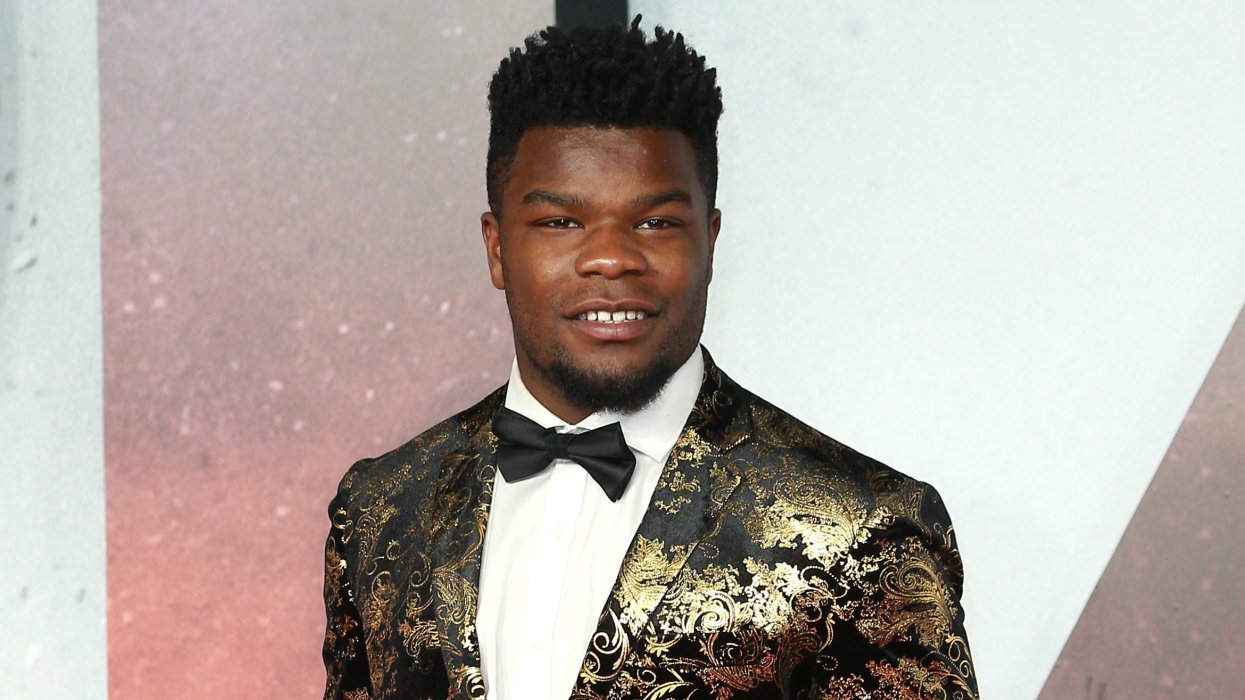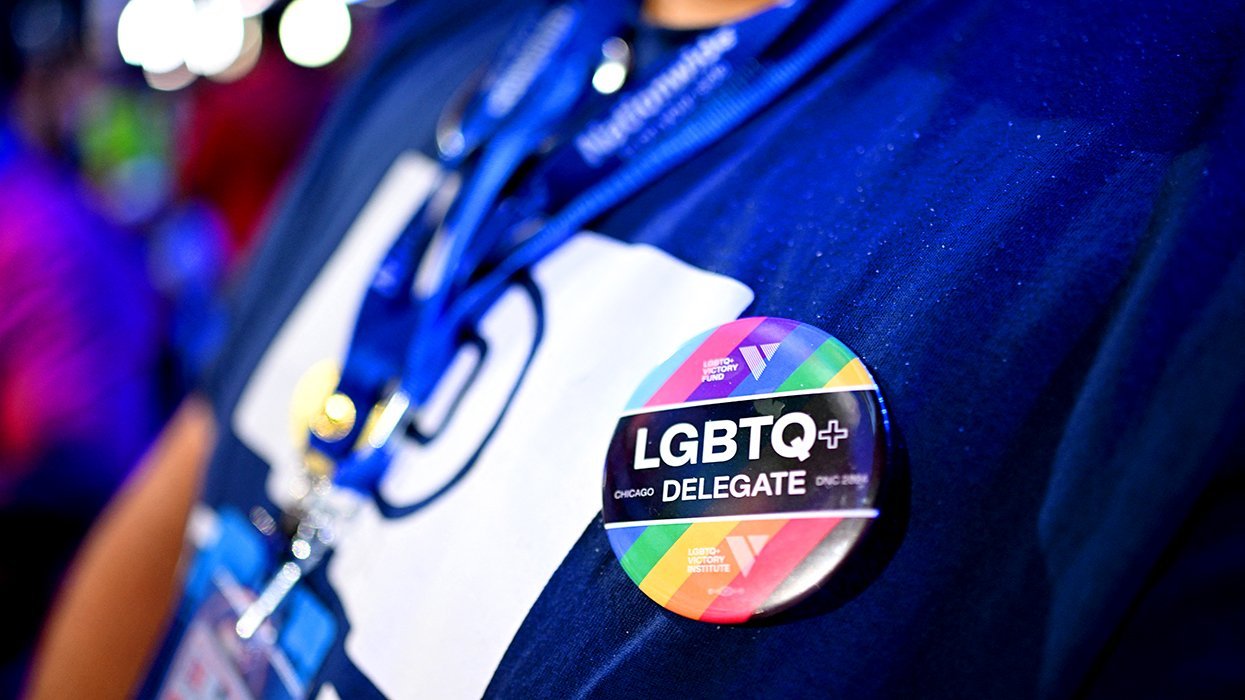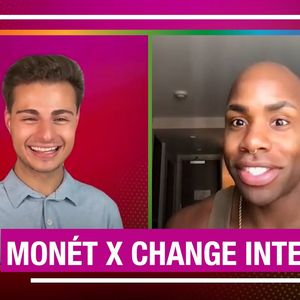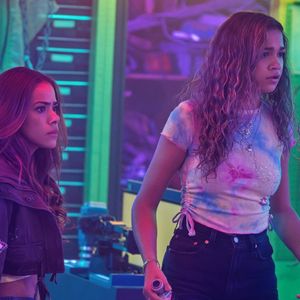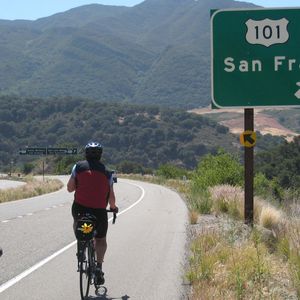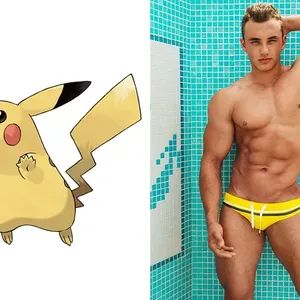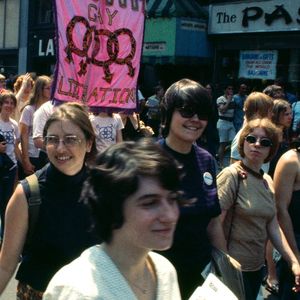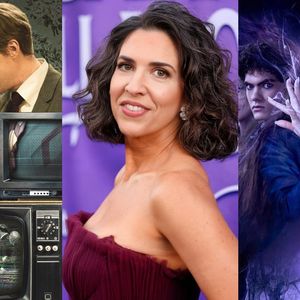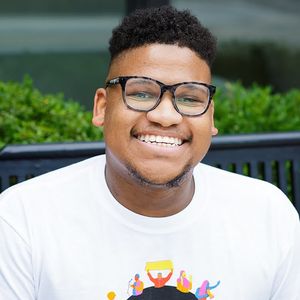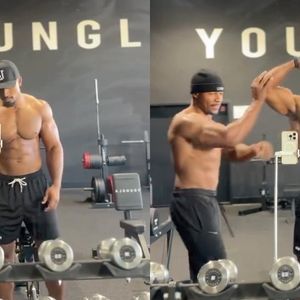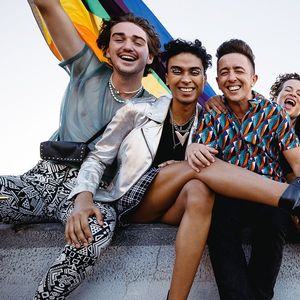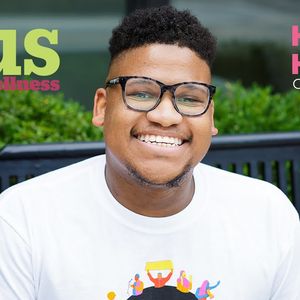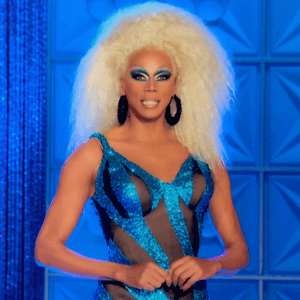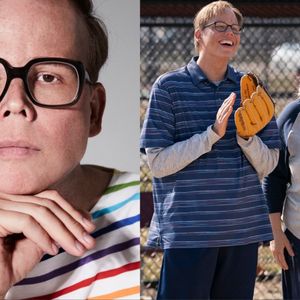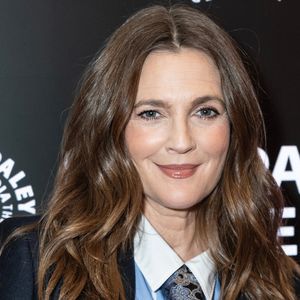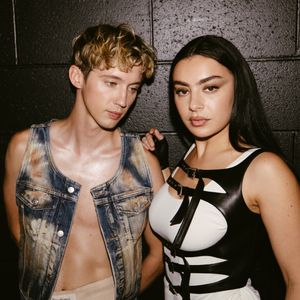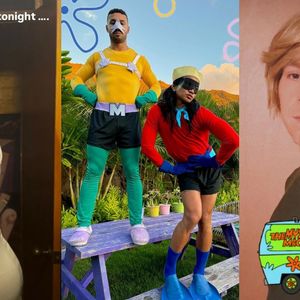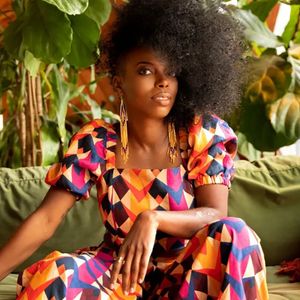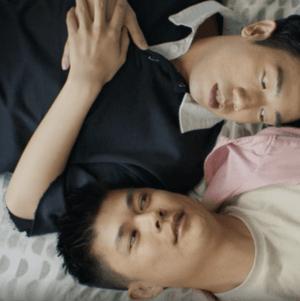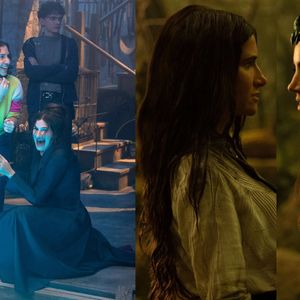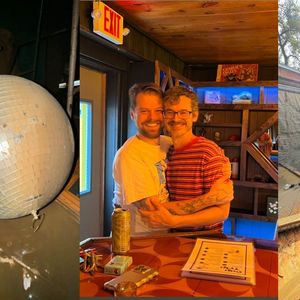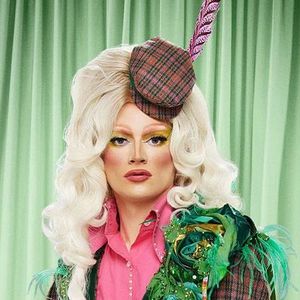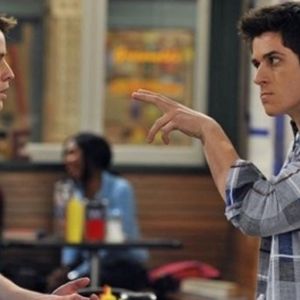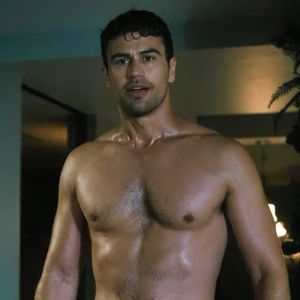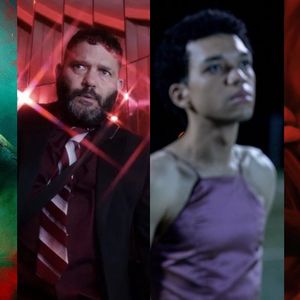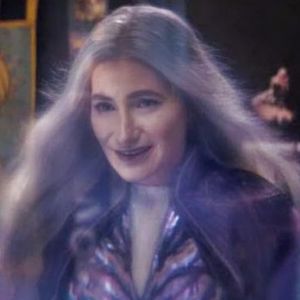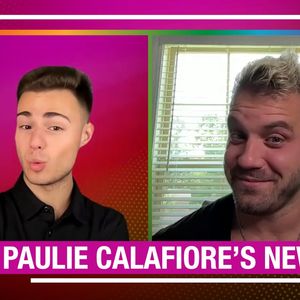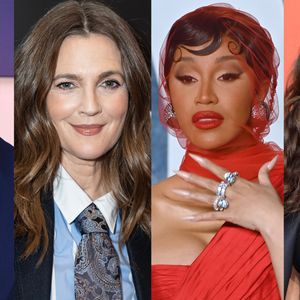A massive crowd is lined up for blocks outside of Hollywood's popular concert venue the Fonda Theatre. Despite the mid-November chill in the air and the fact that it's a school night, the eager mass is made up mostly of a diverse mix of young, high school- and college-aged kids. Some with hair different colors of the rainbow. Some with hip, trendy outfits that look like they took weeks to plan. Some proudly holding hands with their same-sex partners. The sheer excitement on their faces as they wait to see 21-year-old bisexual singer-songwriter Halsey has as much to do with the performer's music as it does with what she represents.
Halsey is free to be herself and to experience emotion, no matter if it's convenient for you. That relentless loyalty to self-discovery makes the already lyrical songwriter all the more vulnerable in real life.
"Every time I got to play a show, even if it's already sold out, I'm so scared no one's going to come," Halsey (whose stage name is an anagram of the first part of her birth name, Ashley Frangipane) tells The Advocate of the success she's had following the August release of her debut album, Badlands. "I'm so scared something better is in town, and they're all going to ditch my show last-minute. I get those weird kind of delusions all the time, but I'm just very, very, very fortunate, and I know that. You can expect nothing in being a musician, and you have to be just very thankful every time it goes positively for you."
And things have been going very positively for the superstar-to-be. Badlands had the third best opening week for a solo debut album in 2015, and in addition to selling out most of the stops on her tour of the same name, Halsey also snagged a collaboration with Justin Bieber on the song "The Feeling" for his latest release Purpose.
"There are things that throw me off, and I am in disbelief about the power of my fans," she says. "It's so stupid to talk about numbers, and I don't like to, but numbers are powerful because of what they represent as far as volume. When we put the album out, I had no idea what to expect the first week. The day that the week ended and we found out it sold over 115,000 albums, my brain was like What?!?"
But there is more to Halsey than just her well-written, well-received music. Openly bisexual from the earliest moments of her career, she exudes a confidence both onstage and off that lends itself to activism in different things besides queerness, including feminism, and more recently in raising awareness of mental illness, since she came out this year publicly as a person with bipolar disorder.
Although she's been hesitant to call herself a role model, Halsey freely expresses her views on issues, creating an intriguing public persona that leaves people, especially her fans, wanting to know more about what makes her tick and the things that mean most to her.
Halsey toldElle in May that she was diagnosed with bipolar disorder as a teenager and that her mom is also bipolar. Since then, she's explained that Badlands is, for her, an exploration of her mental state while writing the album. Ultimately, she wants young people who are free to discover themselves. You can hear that rebellious theme in the way she talks about being bisexual, for example.
"I think a lot if comes down to people not wanting to let young people explore themselves," she says. "We live in this world where, you're a teenager, and everyone tells you for three years from the time your 15 from the time that you're 18 that 'You don't know anything. You don't know anything about yourself. You don't know anything about the world. You don't know anything, you have no idea.' And if you insist you know something, you know and understand a part of your sexuality, you often get told, 'Oh, things change. You're still young. You don't know.'"
And because of this backlash, she wants to shed light not only on bisexuality, but on the larger need for young people to be empowered and able to find out who they are.
"I definitely have a responsibility, because it is something that is not considered," Halsey continues, recalling that the music video for her first major single (and crowd favorite) "Ghost" features a woman as her love interest. "When I put out a video of me in a relationship with a woman, most of the reaction was, 'But you have a boyfriend, so that means you're sexualizing it.' There's not just me being straight and me being a lesbian. The fact that you didn't even consider the option that I might be bisexual means that we're not talking about this enough."
The concert at the Fonda is just one stop on the road compared to all of the shows she's played on the Badlands tour, throughout which Halsey proves that just by being herself, she can have an impact on young people who like both good music and social issues. And she wants to do right by them.
"For me, it's about more," she says. "I find myself representing, and I say that word apprehensively because I don't think one person can represent any community of people, a number of communities. I'm open about having bipolar disorder, I'm open about being of mixed-race, I'm open about being bisexual, and I have this wantingness to talk about it, and for me, it's about more than being a role model for any specific community. I think it's about wanting to be a role model that's comfortable with myself. That's unafraid of being myself."
"My end goal is to encourage kids that they can be proud of who they are, and that doesn't just mean that I want my bisexual fans to feel proud of being who they are. I want any kid who listens to my music to see that I am confident with all elements of my personality that I can't change," she continues. "If me being confident and secure enough to talk about my bisexuality helps some other kid be confident enough to talk about having social anxiety or for another kid to talk about coming from an Islamic background, if it helps any kid who is in a place where they can feel like they're going to be chastised and judged for who they are, if it helps them talk about it, then that's all that I want."
